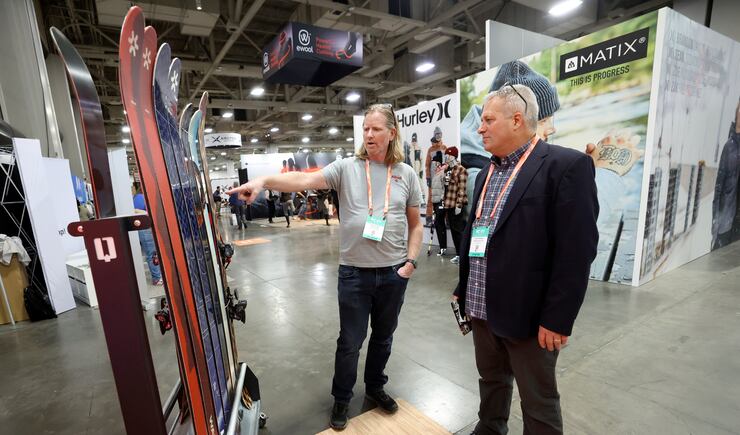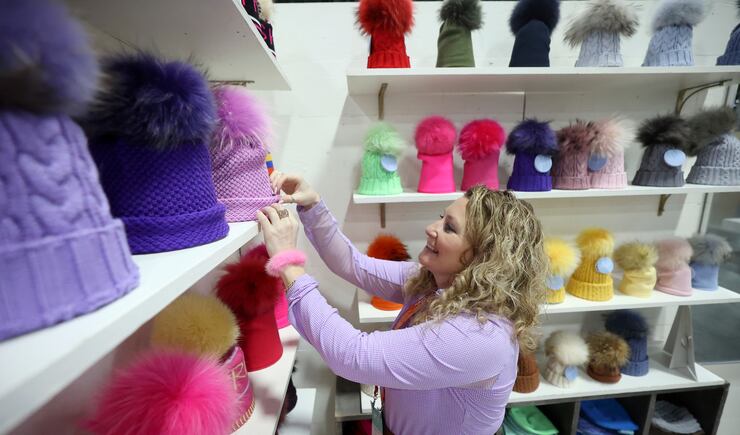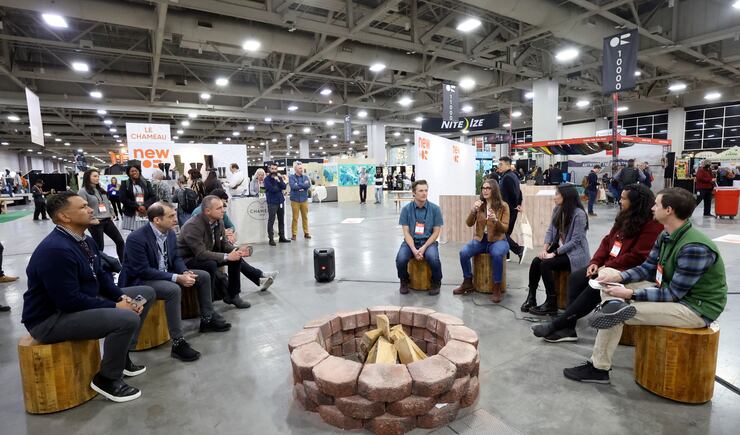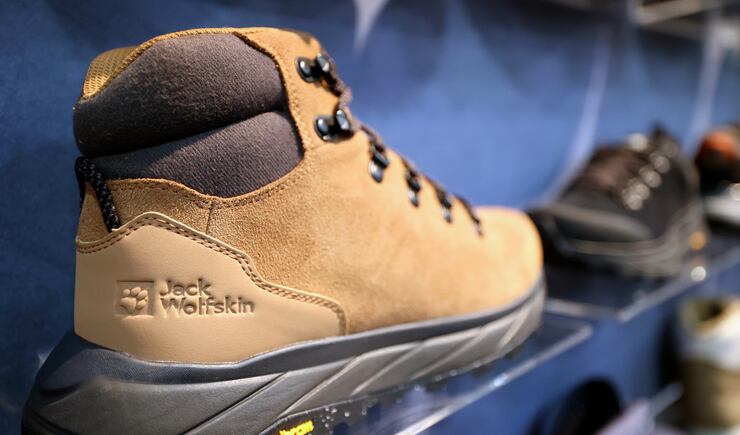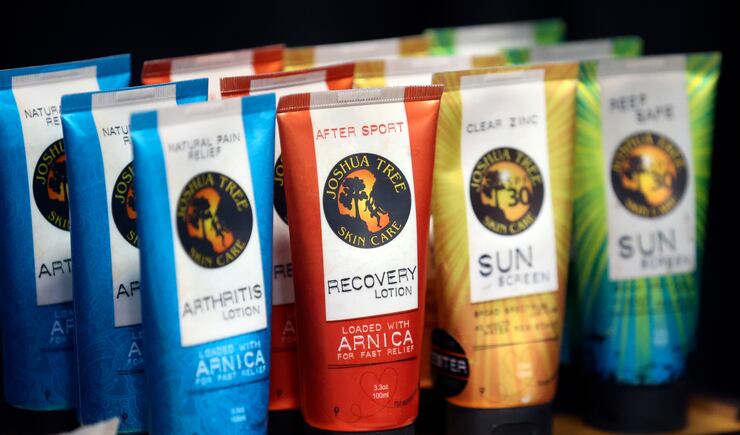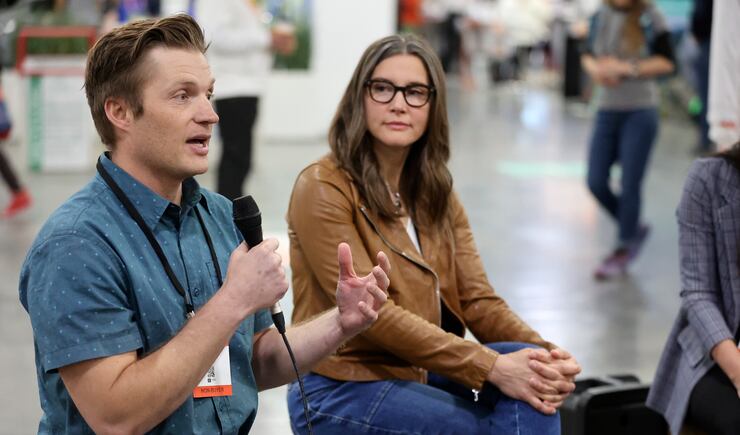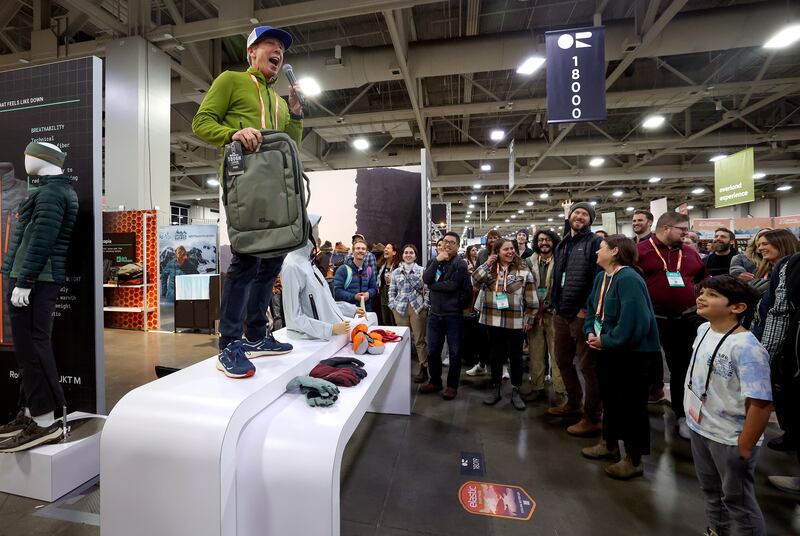The once mammoth Outdoor Retailer trade show is back in Salt Lake City, kicking off a three-day run on Tuesday in a decidedly more subdued, but still bustling, gathering of recreational gear makers, service providers and industry buyers.
The prodigal, twice-yearly events called Salt Lake City home for over 20 years before moving to Denver in 2018 amid swirling controversy over land use issues. While the shows regularly drew over 20,000 attendees and tens of millions of dollars in economic activity for its host cities before COVID-19 derailed mass, in-person gatherings, this year’s reboot represents a new path and a new vibe for the trade shows. Show organizers were expecting about 10,000 to 12,000 attendees this week and are featuring over 400 exhibitors at the Salt Palace Convention Center. Overall, the numbers are down by about 50% from the last time Outdoor Retailer was in Utah’s capital city.
German outdoor gear and clothing specialist Jack Wolfskin is exhibiting at Outdoor Retailer for the first time this year, and its booth was teaming with staffers and buyers on Tuesday morning. The company said it is one of the top brands in its home country and enjoys wide popularity throughout Europe but is just getting a foothold in the U.S. In 2019 the company opened its North American headquarters in Park City after it was purchased by California-based sporting goods giant Callaway.
Jack Wolfskin brand strategy consultant Peter Haffenberg is an outdoor industry veteran who’s been attending the Outdoor Retailer events since the early 2000s. Haffenberg said the smaller footprint of the 2023 winter show had its benefits.
“Obviously this show is a fraction of what it used to be and we’d love it if there were more brands here,” Haffenberg said. “But, it’s a great foray back to SLC and we’re psyched to be one of the biggest outdoor brands here ... and we’ve got a great buzz happening.”
On the other side of the outdoor gear spectrum, Allred Skis is a one-man custom ski manufacturer based in Pleasant Grove. Owner Chad Allred’s tiny booth and his rack of beautiful, handmade skis was garnering plenty of its own traffic and a lot of admiring looks from passersby on Tuesday.
Allred has a background in physical therapy and said the science of body mechanics informs his approach to ski design. When things get busy, he puts his nephew to work, but otherwise Allred builds skis on his own from the ground up, including harvesting core lumber from downed trees in the Wasatch Mountains. What’s the advantage of going with a boutique ski manufacturer like Allred? He’ll make you a set of skis built entirely to your own specs.
“I can make a customer whatever they want when it comes to sidecut, width, length and even custom graphics,” Allred said.
Allred had his first exhibit at the final winter edition of Denver’s Outdoor Retailer show last year, an event that was still being impacted by COVID-19 concerns and was lightly attended, but was happy to have the show back in Utah.
Marisa Nicholson, Outdoor Retailer senior vice president and show director, said the return to Salt Lake City marks a change in her company’s approach to the events, with a bigger focus on community engagement and expanded commitment in its role as a convener of all stakeholders with a connection to the outdoor recreation industry.
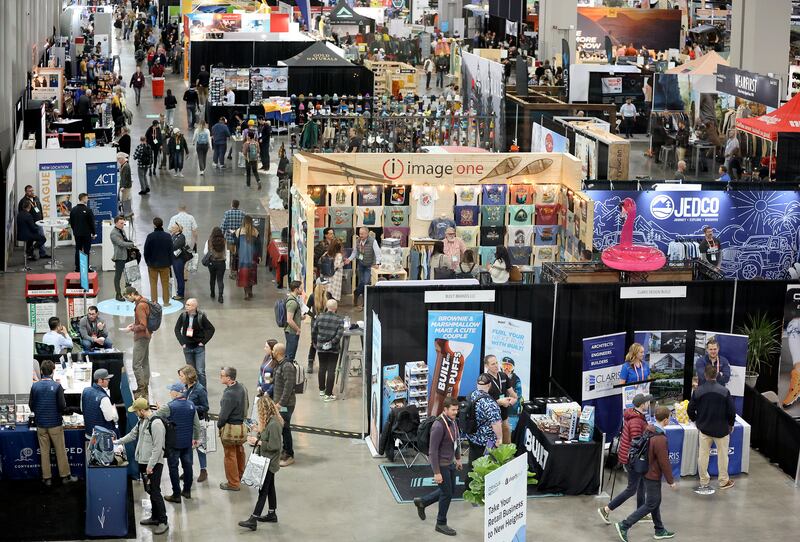
To that end, Outdoor Retailer is working to bring the public into the fold for what has been a very industry-centric gathering, starting with a community block party on Tuesday evening and extending into a summer show event at Snowbasin Resort that will bring retailers and consumers together in an outdoor exhibition in June. Other new programming includes a Businesses With Purpose Initiative, in partnership with Visit Salt Lake; a revenue give-back plan to funnel support to Utah outdoor recreation and public lands projects; and an expanded schedule of panel discussions, educational activities and volunteer projects.
While this week’s show is seeing a downtick from the volumes it enjoyed before pandemic restrictions, outdoor recreation remains a huge economic engine for Utah and the rest of the country.
A new U.S. Bureau of Economic Analysis report finds the national outdoor recreation economy easily outperformed the overall U.S. economy in 2021, growing 18.9% compared to national economic growth that came in at 5.9% for the year.
Utah’s slice of the outdoor recreation action accounted for 2.7% of the state’s gross domestic product in 2021, according to the report, and generated over $6 billion in economic activity for the year. The analysis found nearly 67,000 Utahns were employed in outdoor recreation-related jobs in 2021 and their earnings accounted for 4% of the total for Utah workers last year. And, Utah’s outdoor recreation jobs are on the rise, growing by 14.9% from 2020 to 2021.
Outdoor Retailer launched in Salt Lake City in 1996 as a relatively modest gathering, occupying around 100,000 square feet of exhibit space and drawing 5,000 attendees. But during its tenure in Utah, which ran through 2017, it grew into the state’s biggest convention event, drawing tens of thousands every time it came to town and growing its exhibition footprint to over 1 million square feet.
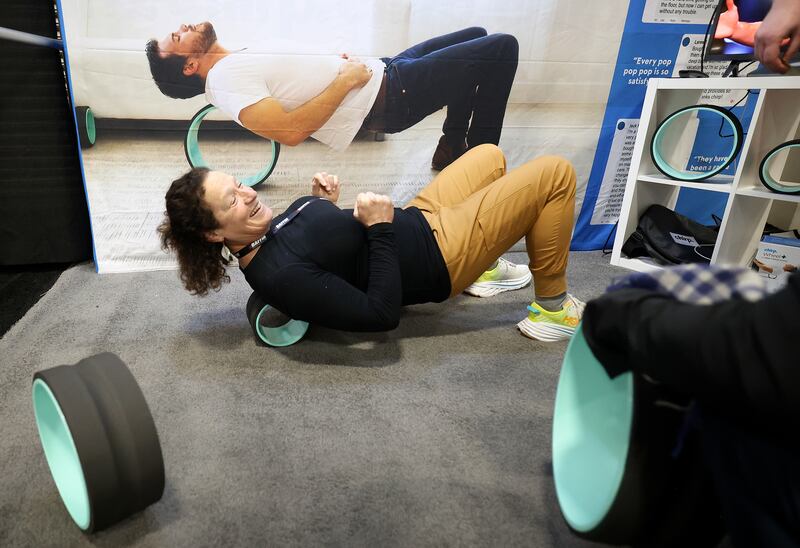
Perceptions of the state, or at least a group of its elected officials, were running low among some outdoor recreation industry heavy-hitters five years ago when Salt Lake City’s contract with Outdoor Retailer was concluding and other cities were vying to take over hosting duties.
Utah’s capital city lost its contract to Denver in 2017 as then-President Donald Trump’s announced plans to reduce several areas of federally protected land riled the environmental community, outdoor enthusiasts, and companies that specialize in outdoor products and services. At the center of the controversy was Trump’s declared intention to reduce the 1.35 million-acre Bears Ears National Monument, created by President Barack Obama in a 2016 proclamation issued just before he left office.
Utah state legislators and then-Gov. Gary Herbert threw their weight behind the Trump plan by passing a resolution in the 2017 legislative session, declaring “strong opposition to the Bears Ears National Monument designation” and urging Trump to undo his predecessor’s executive order.
Back in February, before the Outdoor Retailer operator Emerald X announced its decision to move the shows back to Salt Lake City, over two dozen outdoor industry companies, including heavyweights like Patagonia, REI, North Face and Kelty, signed a letter promising to boycott the shows, should they return to Salt Lake City.
“We’ve joined together in stating that we will not support or attend a trade show event in Utah so long as its elected officials continue attacks on national monuments and public lands protections,” the letter reads. “Industry leaders are expressing their support for the Bears Ears Inter-Tribal Coalition and its longstanding efforts to protect the homeland of the Tribes and Pueblos with cultural ties to the Bears Ears landscape, as well as the overwhelming majority of the outdoor industry and the American public.
“Despite widespread industry objections, Emerald has demonstrated a continued interest in moving the Outdoor Retailer trade show to Utah, a state that leads the fight against designated national monuments and public lands.”
Utah’s current governor, Spencer Cox, also opposed the Bears Ears designation, which was rescinded by Trump and later reinstated by President Joe Biden. He remains adamant on Utah’s position on federal land protections, but pointed out that the division between some voices in the outdoor industry and state leaders is less dramatic than the dialogue may reflect.
“If you want to come somewhere to have an impact on these issues, Utah is where you want to be to have a seat at the table,” Cox said after news of Outdoor Retailer returning to Utah was announced last year. “I’m looking forward to having those conversations. We do have major differences, but we’re not as far apart as people say we are. We do want to work on these issues together.”
